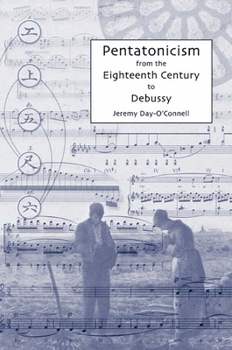Pentatonicism from the Eighteenth Century to Debussy
(Part of the Eastman Studies in Music Series)
A generously illustrated examination of pentatonic ("black-key scale") techniques in the context of eighteenth- and nineteenth-century Western art-music. Pentatonicism from the Eighteenth Century to Debussy offers the first comprehensive account of a widely recognized aspect of music history: the increasing use of pentatonic ("black-key scale") techniques in nineteenth-century Western art-music. Pentatonicism in nineteenth-century music encompasses hundreds of instances, many of which predate by decades the more famous examples of Debussy and Dvor?k. This book weaves together historical commentary with music theory and analysis in order to explain the sources and significance of an important, but hitherto only casually understood, phenomenon. The book introduces several distinct categories of pentatonicpractice -- pastoral, primitive, exotic, religious, and coloristic -- and examines pentatonicism in relationship to changes in the melodic and harmonic sensibility of the time. The text concludes with an additional appendix of over 400 examples, an unprecedented resource demonstrating the individual artistry with which virtually every major nineteenth-century composer (from Schubert, Chopin, and Berlioz to Liszt, Wagner, and Mahler) handled theseemingly "simple" materials of pentatonicism. Jeremy Day-O'Connell is assistant professor of music at Knox College.
Format:Hardcover
Language:English
ISBN:1580462480
ISBN13:9781580462488
Release Date:August 2007
Publisher:University of Rochester Press
Length:566 Pages
Weight:2.35 lbs.
Dimensions:1.5" x 9.3" x 6.4"
Customer Reviews
0 rating





